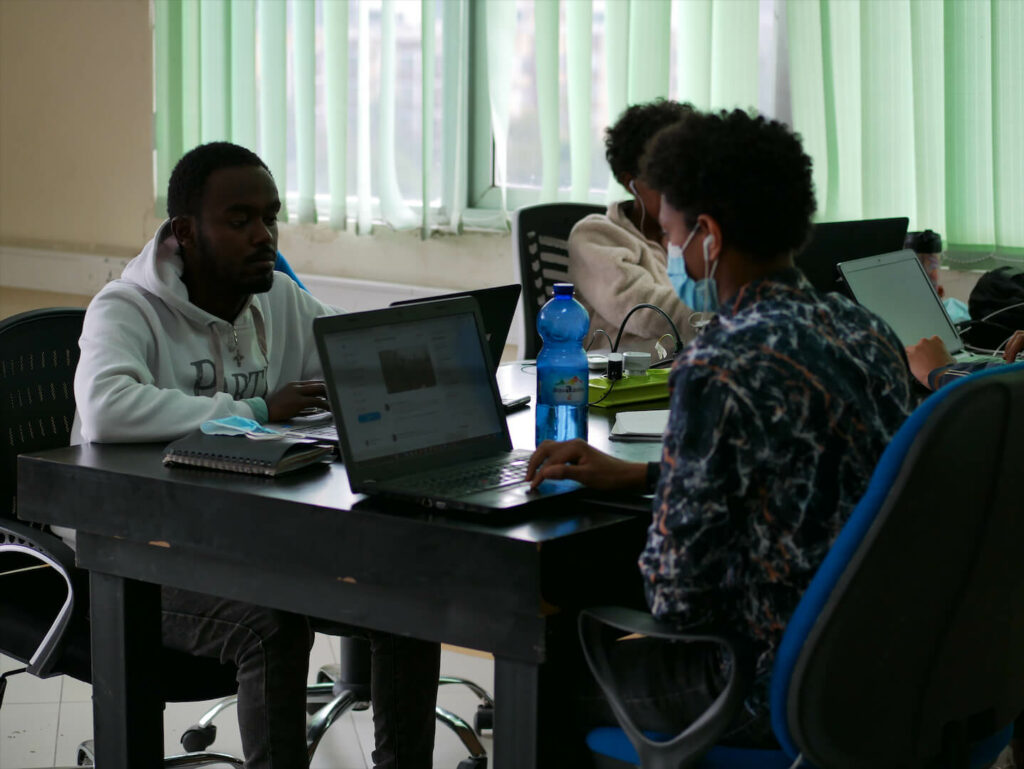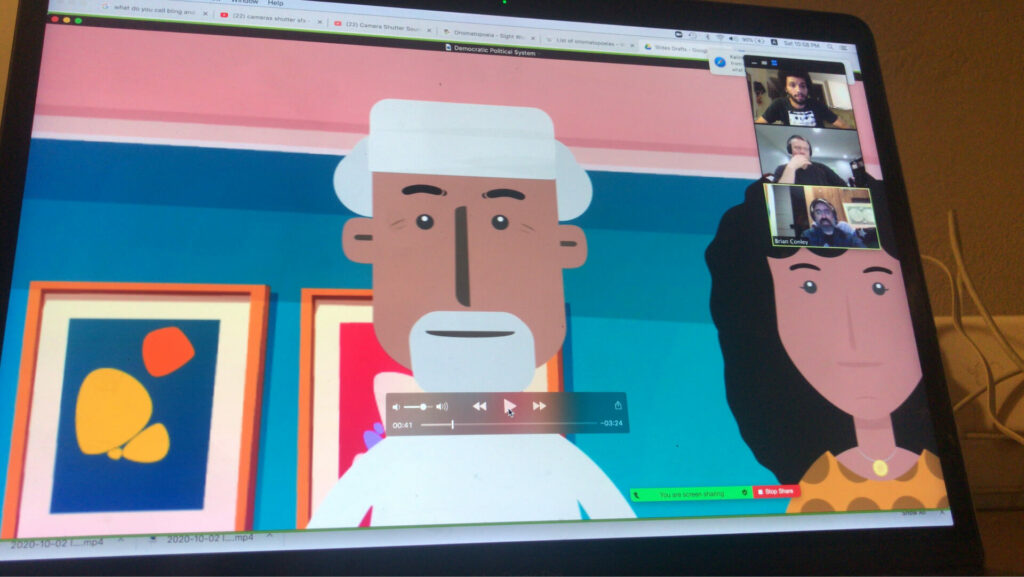
Photo courtesy of Fasila
Fasila, the latest affiliate to join the Video4Change Network, combines Small World News’ 15 years of experience delivering innovative media training and online storytelling approaches with the network building experience of its creative lead Radi Dahan.
Fasila works mostly in the Middle East and North Africa (MENA) region in direct partnership with organisations working in journalism, storytelling, radio production, countering disinformation, strategic communications, and ensuring the safety and security of journalists and activists.
Radi’s experience leading a dynamic network of social media influencers and young journalists and creatives has been an integral part in building Fasila. EngageMedia’s Egbert Wits recently spoke to Radi to learn more about their work. Here are some highlights from that conversation.
Egbert: How are things with you and with Fasila in general?
Radi: I’m good, just moved to Berlin, so I’m still trying to get used to life here after six years of working in Tunis. We actually started Fasila around two years ago, and since then it’s been an exciting journey.
We just facilitated a journalism storytelling training in Ethiopia, joined by many independent media outlets from Addis Ababa, both those working online and offline. In Yemen, we are working on a program tackling disinformation, training journalists on the ground how to recognise and counter it. The program aims to build a local community fighting disinformation. In order for the training to be accessible to all, we’ve actually been using Facebook. We share all our training sessions on this platform.
At the moment we are predominantly active in Afghanistan, reaching out to all the people we know there. Collaboratively, we are producing stories showing daily life on the ground. We’re publishing this via the Alive in Afghanistan Twitter account. Besides sharing stories and updates, we encourage people to join and tell their stories – not only those in Kabul, but also from the region.
Egbert: Impressive work. In general, how would you say Fasila practices Video for Change?
Radi: For us, video for change is about teaching people how to use video to tell their stories. In our own work, we use videos to shape and communicate our learning. This means we don’t just write up our training, we create audio-visual content for it. So if we give training – in, say, Iraq – we don’t just translate materials and make an Iraqi guidebook. We produce a visual guide, using motion graphics and video to explain things in a ‘cooler’ and condensed form. It has moving elements, attracting younger folks, and our training materials become easier to share online. We have a whole team working on this – from motion graphic designers, to voice-over actors, making sure content is contextualised, recognisable, and culturally appropriate.
We’ve produced these motion graphic training materials now for Alaska, Iraq, and Ethiopia. These videos are really the core of our training. Whiteboard videos are also a great way to convey learning, currently we’re experimenting a lot with this. We’re constantly improving things, I guess (laughs).

Photo courtesy of Fasila
Egbert: Yeah, I can really see how having short animated videos with recognisable scenes and characters can increase people’s interests and learning. What, according to you, is the advantage of video-based transmission of knowledge and skills?
Radi: By listening to our trainees in Ethiopia and Iraq, we’ve learned that audiences get bored very quickly. It’s so easy to scroll down to the next thing. Attention spans are short. Our videos allow us to visually capture the attention of a person by giving them the impression that something is happening right now. So if we teach about civic education in Ethiopia, we would hire a local specialist to rewrite our content. Our videos are also created in such a way that you always want to know what is going to happen next, making a series of usually four, five, or six minute videos each. It’s structured in time, efficient, and participants get all there is to know about a specific topic. In a physical face-to-face training, experienced facilitators can simply show our video, and then follow up with discussions. Again, distributing content to the wider community also becomes easier. Participants are encouraged to share content right away with anyone interested.
Any training materials we produce are immediately made available to the public. We aim to share the knowledge with as many as we can. Of course, we do put our identity on it and on our website, we also always put all our slides and information to download. This ‘open access’ model works very well for us.
Egbert: Amazing, and exciting to learn how Fasila is using video. What are some of the challenges that you face in working this way?
Radi: A big challenge is keeping content updated. Once videos go online and come alive on social platforms, they still need to be updated and checked. A way to counter this is the Massive Open Online Courses (MOOCs) model, where there’s tests and reminders built in. This way, we know if people are engaging with our content, while our training materials are basically being kept alive by users. Using this MOOC model also gives us the outputs of user engagements, which helps to evaluate it.
Another challenge is working across different cultures. Our team is in Libya, Tunis, Germany, and America. If a project is Libya-based, then it’s easy for us to give it a Libya feel by showing footage from Libya and localising contents. But when we work in Ethiopia, it’s so hard to get that local feel, making content [that is] representative to our participants. I mean, if it’s clearly made by an outsider looking at Ethiopia then it’s not going to be attractive. Then if we were to give this same training in Iraq, we’d need Iraqi people to help us with the voice-overs, adjusting it to local culture, etc. So, working visually adds a whole other level to contextualising the content and making sure [that] your materials are representative [of] the contexts and cultures where the training takes place.
A different tone of skin, a wrong background, or a strange spoken dialect can already cause conflict. So attention to detail and being keen [about] these differences is essential. Actually, to be honest, this is what I love about my work.
Egbert: Amazing, and happy to hear this is what sparks your passion. What does the near future hold for Fasila?
Radi: We are now making our first complete MOOC training. It will be a storytelling course, in a visual and exciting package. So I’m very much looking forward to completing that soon.
——————
Egbert Wits is the Learning Manager of EngageMedia’s Video for Change programs.
Learn more about what the newest members of the Video4Change Network are up to through our new member spotlight series, and check out Fasila’s work on their website.